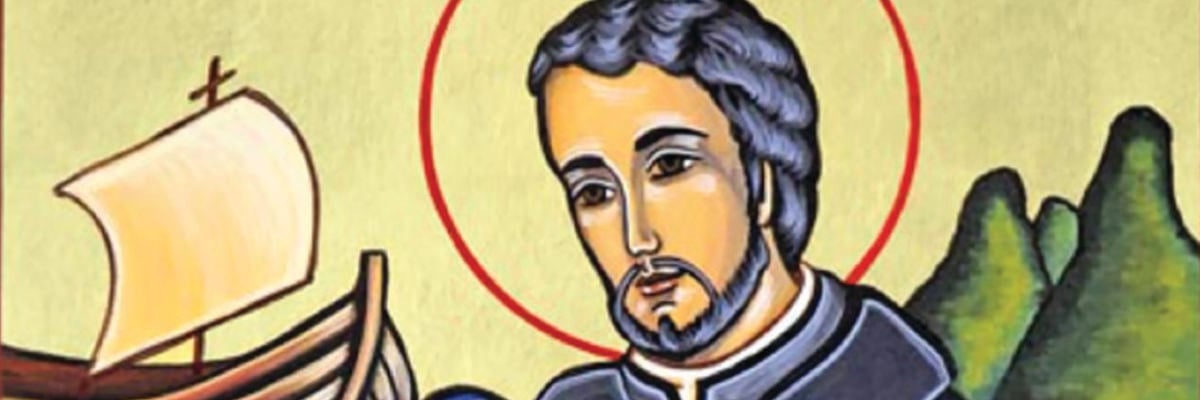
St. Francis Xavier, of the Church’s greatest evangelizers, was born on April 7, 1506, in the castle of Xavier near Pampeluna, Navarre, Spain. His parents were two of the most distinguished families in the kingdom. Francis was sent at a young age to the University of Paris, where he developed not only into a great scholar but also a prideful and ambitious man.
In 1528, Ignatius Loyola came to the university and was assigned a room with Francis and Peter Faber (another future Jesuit). Ignatius immediately recognized Francis as someone who could do great things for God. But no matter how hard Ignatius tried to win Francis to Christ, he was met with resistance. Ignatius’s call to poverty threatened Francis’s ambitions and vanity. It took years of prayer and many private conversations with Ignatius before Francis finally saw the emptiness of his worldly life and his need for God. In 1534, Loyola took Francis and six other men and formed the Society of Jesus.
Francis was ordained in 1537. In 1540, at the request of the king of Portugal, Ignatius sent Francis to India as the first Jesuit missionary. In 1541, accompanied by several assistants, Francis sailed for India. The voyage was long—thirteen months—and punishing.
When the ship landed in Goa, the capital of Portuguese India, Francis found the local Christians living such scandalous lives that even the heathens didn’t want anything to do with them. He immediately began reinstructing them in the Faith. He also tended to the sick, heard confessions, and visited prisons.
He wrote catechism lessons, preached to the adults, and took hundreds of people with him to a nearby church for instruction on prayer and Christian doctrine. The local bishop recognized the fruits of his efforts and instructed the other priests in the city to follow Francis’s methods. Many souls were saved.
In September 1542, Francis set sail for southern India, the coast of La Pescaria, to catechize the people who had long before abandoned the Faith for lack of instruction. He was immediately met with resistance. It was only after he performed miracles that the people accepted his teachings and returned to the Faith. He slept little and ate what the poor ate. It was there on the coast of La Pescaria that the people called their beloved Francis “The Holy Father.”
In July 1549, Francis arrived in Japan as the first Christian missionary. After learning Japanese, he began to preach and teach, but only a few converts were made, and on many occasions he was met with violence.
Arriving in Kyoto in 1550, he found the city unreceptive to the gospel, so he traveled to Yamaguchi. He gained an audience with the prince, who was so impressed he gave Francis and his companions an empty monastery and full permission to preach. At the end of his time in Japan, thousands of souls were won for Christ.
Francis’s utmost desire was to reach China, which at the time was closed to missionaries. When the boat that was to take him to the Chinese mainland failed to arrive, he contracted a terrible fever, and after much suffering, he was taken to Shangchuan Island, China, where he stayed in a crude hut until he died on December 3, 1552. He was forty-six years old. His last words were “In Thee, O Lord, have I hoped; let me never be confounded.”
It is reported that between the years of l542 and 1552, more than 700,000 souls were won through Francis’s tireless apostolic efforts. He was canonized in 1622.


